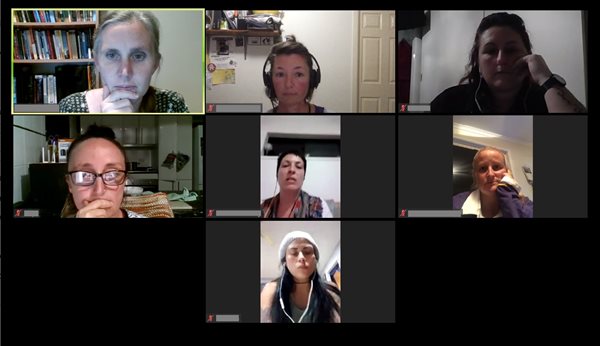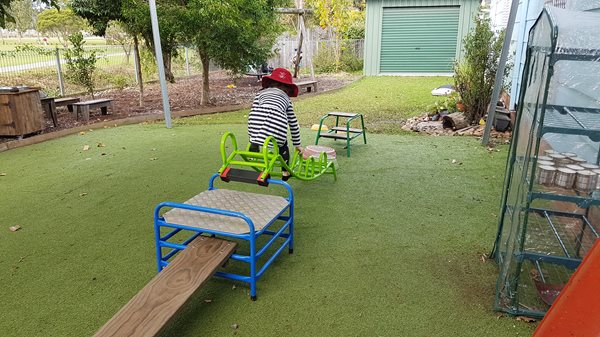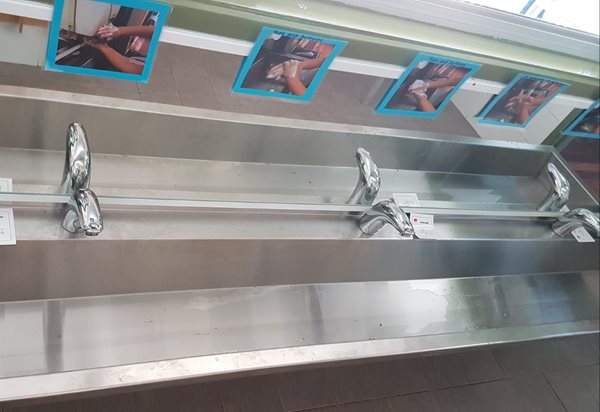The government has provided information about COVID-19 for NSW schools, universities and childcare centres including how to encourage good hygiene, social distancing, preparing for illness and communicating changes.
But what does that look like in reality in an ECEC setting?
In the second of our two-part series, we speak with a service in Lismore on the NSW far north coast to find out what they are doing to keep staff and families safe.
East Lismore Community Preschool
East Lismore Community Preschool is licensed for 50 children aged 3-5 years across two rooms. During weeks 10 & 11 of Term 1, they had between 4-7 children attending per day. During week 1 of Term 2, they have seen between 12-15 children. Based on current contact with families, they are expecting to see even more children returning over the coming weeks.
We spoke with Business Operations Manager Louise Maxwell and Nominated Supervisor Natalie Ward about the many changes the centre has made to keep staff and families as safe as possible
Staffing remains steady due to JobKeeper and other funding mechanisms
13 part-time and full-time staff members are employed at East Lismore Community Preschool. This includes four Early Childhood Teachers, five Diploma trained educators, three Certificate III trained educators and a Business Operations Manager with a degree in Business (Accounting).
As part of the service’s Emergency Risk Assessment for COVID-19, Business Operations Manager Louise Maxwell tells us that the team have made changes to who works on-site and who is at home to ensure sustainability. For example, she’s working from home in order to allow the Nominated Supervisor to work in the office they usually share. This allows for safe distancing and ensures that if one needs to self-isolate, the other person is still available.
This week a new roster system has been implemented, which is focused on staffing groups to reduce as much contact and cross over as possible.
“This will put us in the best position to be able to continue to operate as well as further reducing the risk to staff and children,” says Louise.
When staff are not rostered onsite at preschool, they are working from home. After applying the financial support of JobKeeper and the cash flow stimulus they have been able to continue to employ all staff and provide care for all children who need to attend preschool now and as needed.
“For our families, we will offer free preschool for Terms 2 and 3,” says Louise. “Our commitment is that our staff have reliable employment and income and that no child misses out on returning to preschool this year.”
 Committee meetings are now held via Zoom video conferencing
Committee meetings are now held via Zoom video conferencing
Expanded roles for all team members
Louise tells us that staff roles continue to expand as the team implements and improves quality preschool education from a distance with families who are staying at home.
“We have quickly adapted to making videos and we are sharing photos with our families much more than we did previously. We have decided to move to an online documentation software which will greatly increase the personal connections we can have with our children and families.”
Those working from home are tasked with working on “all those tasks we never have time for”, in addition to contributing to the implementation of remote learning. Louise shares that this will include reviewing policies, contributing to the QIP, watching webinars for professional development, updating child protection training, completing online CPR training components, researching theories of early childhood and writing their teaching philosophy as a first step to reviewing the centre philosophy.
A spotlight on staff safety
The management team at East Lismore Community Preschool is making every effort to ensure that the preschool is a safe place for staff to attend.
“We have communicated with staff and the committee our Emergency Risk Assessment for COVID-19,” says Louise. “This helps them to know what we are doing as a whole and what part they have in implementing the control strategies.”
Webinars designed to ensure that best practise responses to COVID-19 have been shared with staff, and procedures are constantly reviewed to ensure that staff safety is considered in all areas.
A continued focus on quality education and care for children
“When considering ratios of staff to children it is really important to think about the needs of the child during this uncertain and challenging time,” says Nominated Supervisor Natalie Ward, who has observed that children are tending to need a higher level of emotional support as we navigate our way through the pandemic.
This has meant that the preschool is implementing higher staff to child ratios than required. The higher ratios also ensure that there are enough staff on site to stay on top of the extra cleaning duties without having to remove themselves from interactions with children.
“Early childhood educators have a pivotal role to play in the lives of children during and outside of this time,” says Natalie. “We are blessed to be able to work with children as they discover and make sense of their world and provide opportunities for them to grow in their social and emotional wellbeing. With this wonderful base, children can approach their lives with a sense of safety and confidence.”
Making sense of social distancing
The team continue to review and develop their Emergency Risk Assessment for COVID-19 and have updated their Emergency and Evacuation Procedures Policy including the development of a pandemic emergency response plan. These have included considering how to implement social distancing.
 Spending more time outdoors with children
Spending more time outdoors with children
Some changes the centre has adopted include:
- Signing children in and out of preschool on the front verandah rather than their rooms.
- Spending the entire day in the outside environment when weather permits.
- Holding committee and staff meetings remotely via Zoom.
- Staggering lunch breaks as much as possible and purchasing an outside table to allow staff to maintain social distancing measures during lunch breaks.
- Stopping incursions and excursions to reduce the number of people who are in contact with staff and children.
- Ensuring accurate and up to date information from the Department of Health is communicated and displayed.
Cleaning procedures reviewed and updated
The Cleaning and Maintaining the Environment policy has been reviewed and updated, as well as all cleaning procedures. The following control strategies have been adopted to reduce risk during COVID-19:
- Teaching and reminding children to adopt safe sneezing and coughing techniques on a more frequent basis.
- Increased focus on handwashing, including more regular singing of a handwashing song and encouraging the entire preschool community to learn it.
- “Many parents have appreciated learning an easy song that they can sing with their pre-schoolers at home too,” says Louise.
- High touch items that cannot be cleaned between children such as playdough have been removed.
- Introduction of additional daily cleaning routines of the high-frequency touch areas including door handles, benchtops, switches.
- Excess resources and cleaned and packed away.
- Procedures around where children put their items have been altered – all items need to be kept in their lockers so there is no extra touching (this includes items such as drink bottles that would normally be kept together in an esky).
- Increased spot checking of the bathrooms.
- Immediate commencement of thorough cleaning routine if a child becomes sick (the child is also isolated from others until a parent or carer can come to pick them up).
 No-touch sensor taps were installed this week
No-touch sensor taps were installed this week
Embracing change and extending compassion
“The changes that COVID-19 has brought on families and the lives of our children are vast and considerable and that impacts families and children in various ways,” says Louise Maxwell, who shares that the team has broadened their understanding of the definition of a vulnerable and disadvantaged child.
“We are really thankful for the opportunity to provide financial support for our families by offering free preschool for terms 2 and 3 for all children and that the State and Federal governments are supporting us to allow this to happen.
“We know that COVID-19 is constantly bringing change to the way we live and impacting our families and we are continuing to reflect on our role of providing education and care for all our preschool children.”